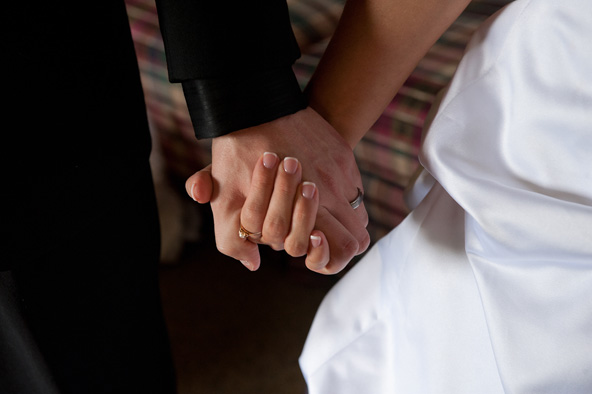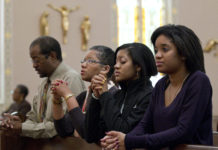
The Supreme Court’s decision to hear arguments about the constitutionality of the federal Defense of Marriage Act (DOMA) and California’s Prop. 8 guarantees that the debate over marriage will be at the forefront of American public life for the foreseeable future.
DOMA defines marriage as the legal union of one man and one woman for purposes of federal law (it says nothing about what states may or may not define as “marriage”). Prop 8 was a voter-initiated correction of the California Supreme Court’s interpretation of that state’s constitution as containing a “right” to same-sex “marriage.” Irrespective of whether the U.S. Supreme Court takes a narrow approach to these cases, or tries to find a “right” to same-sex “marriage” in the U.S. Constitution that would be binding on all the states, the marriage debate will continue. Indeed, if the Court preempts the political process, the marriage debate will likely intensify, just as the right-to-life argument intensified after Roe v. Wade eliminated the abortion laws of every state, 40 years ago this month.
All the more reason, then, to try and clarify some of the issues here.
Laws authorizing same-sex “marriage” have been successfully promoted as the equivalent of civil rights laws that ban racial discrimination. Indeed, that’s a large part of the power of the “marriage equality” movement: it has battened onto the one available public moral reference point for Getting It Right in 21st-century American politics — the civil rights movement of the 1950s and early 1960s. For almost two centuries, equality before the law had been denied to Americans of African descent; that blatant injustice was challenged by a movement of moral persuasion and legal maneuver; the movement was ultimately vindicated by a change of hearts, minds and statutes. If then, on matters of race, why not now, on the question of who can “marry”? That’s the argument; it has considerable emotive power.
But it’s wrong.
In their recent book, “What Is Marriage? Man and Woman: A Defense” (Encounter Books), three Catholic thinkers with Princeton connections — Robert P. George (who holds Woodrow Wilson’s old chair at that eminent university) and two of his former students, Sherif Girgis and Ryan Anderson — argue persuasively, and on grounds of reason, that America can’t arrive at a serious answer to the question of whether government should redefine marriage to include same-sex partnerships by appealing to equality.
Why not? Because every marriage policy in every polity known to history draws boundaries, excluding some types of relationships from “marriage.” Parents can’t marry their children. Brothers and sisters can’t marry. People beneath a certain age can’t marry. People who are already married can’t marry.
In other words, governments, whether autocratic, aristocratic, monarchical or democratic, have always “discriminated” — i.e., made distinctions — in their marriage laws. And in that sense, there is no “equality”-issue in marriage law similar to the equality that racial minorities rightly sought, and won, in the civil rights movement.
If marriage law is always going to involve distinctions, the moral (and legal/constitutional) question is whether the distinction inflicts a “discrimination” that is arbitrary or invidious. Or does the distinction inhere in the very nature of marriage and serve a genuine public good?
In 21st century post-modern culture, it’s hard to make an argument from the “nature” of anything. Try this, though. When the Nov. 2, 2012, issue of Entertainment Weekly refers to “Lincoln” screenwriter Tony Kushner as “the husband of Entertainment Weekly columnist Mark Harris,” aren’t you jarred? Doesn’t something seem, not just unfamiliar, but mistaken? Do you have the same instinctive reaction — something’s awry here — when reading a London Daily Mail headline from last Oct. 23: “Ellen Degeneres receives comedy award as her gorgeous wife Portia De Rossi looks on”?
For millennia, governments have legally recognized the nature of “marriage” as the stable union of a man and a woman, both because that’s what it is and for good public policy reasons, including the well-being of children and the promotion of family life. Does that recognition involve distinctions? Yes. Does it result in injustice? No.




![[VIDEO] Make Sunday feel like Sunday again](https://www.catholicsun.org/wp-content/uploads/2021/04/2021-YOUTUBE-BISHOP-MESSAGE-THUMBNAIL-ENGLISH-218x150.png)

